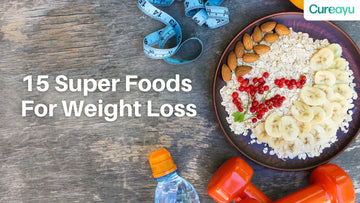Our digestive system is like the engine that powers our body, converting food into the energy and nutrients we need. When we prioritize foods that support digestion, we’re essentially fueling our body with the building blocks for vitality and resilience. The right choices not only ease digestion but also impact our energy levels, immunity, and even mental clarity, emphasizing the profound impact of a well-nourished gut on our overall health.
What Is Digestive Health
Digestive health refers to the efficient breakdown and absorption of nutrients from the food we consume. It involves the proper functioning of the gastrointestinal tract, ensuring a balance of gut bacteria and the absence of digestive issues.
- Efficient nutrient absorption and utilization
- Balanced gut flora
- Absence of gastrointestinal discomfort
What Are The Reasons For Indigestion
Several factors can contribute to indigestion, disrupting the digestive process:
- Eating too quickly or overeating
- Consuming high-fat or spicy foods
- Stress and anxiety affecting gut function
- Food intolerances or sensitivities
- Lack of physical activity
Also Read: Optimizing Health with Testosterone: Natural Boosters and Ayurvedic Insights
What Problems Can Indigestion Lead To
Indigestion, if left unmanaged, can give rise to various health issues, impacting our overall well-being:
- Acid reflux and heartburn: Persistent indigestion can cause a burning sensation in the chest, leading to discomfort and sleep disturbances.
- Gastroesophageal reflux disease (GERD): Chronic indigestion might escalate into GERD, resulting in long-term complications like esophageal damage.
- Bloating and gas: Ongoing digestive issues can cause uncomfortable bloating and excessive gas, leading to abdominal discomfort.
- Nutrient deficiencies: Poor digestion might hinder the absorption of vital nutrients, leading to deficiencies that impact overall health.
- Irritable Bowel Syndrome (IBS): Prolonged indigestion can contribute to IBS, causing abdominal pain, altered bowel habits, and discomfort.
- Fatigue and reduced immunity: Inefficient digestion can affect nutrient absorption, potentially leading to fatigue and a compromised immune system.
How Food Can Build Digestive Health
Choosing the right foods can greatly aid in promoting digestive health:
- Probiotic-rich foods: Yogurt, kefir, kimchi, and sauerkraut promote beneficial gut bacteria.
- Fiber-packed fruits and vegetables: Apples, bananas, broccoli, and carrots aid digestion by regulating bowel movements.
- Ginger and peppermint: Known for their soothing effects on the digestive system, they alleviate indigestion and nausea.
- Whole grains: Oats, brown rice, and quinoa are rich in fiber, aiding in smooth digestion.
- Lean proteins: Chicken, fish, and tofu are easier to digest compared to fatty meats.
Also Read: Understanding the Importance of Physical Fitness for Well-being
What Are Easy To Digest Foods
Certain foods are particularly gentle on the digestive system:
- Bananas: High in potassium and soluble fiber, can improve digestion.
- White rice: Easily digestible, offering relief during digestive discomfort.
- Boiled potatoes: Contain starch that breaks down easily, easing digestion.
- Plain toast or crackers: Simple carbohydrates that are gentle on the stomach.
- Cooked vegetables: Steamed carrots or spinach are softer, aiding in digestion.
- Lemongrass Tea: Known for its calming effect on the stomach, it can ease digestive discomfort and promote relaxation.
- Apple: High in fiber and easily digestible, aiding in bowel regularity and digestive health.
- Lean Protein: Chicken breast or fish like salmon are lighter on the stomach compared to fatty meats, supporting easier digestion.
- Whole Grain Foods: Oats, brown rice, and quinoa are rich in fiber, promoting smoother digestion and offering sustained energy.
Also Read: The Ultimate Guide to Ayurvedic Herbs and Their Remarkable Benefits
Foods Causing Indigestion
While some foods aid digestion, others might trigger discomfort:
- Spicy foods: Can irritate the digestive tract and cause heartburn.
- High-fat foods: Slow down digestion and can lead to bloating or discomfort.
- Carbonated beverages: Increase gas production, causing bloating and discomfort.
- Dairy products for lactose intolerant individuals: Can lead to digestive issues if intolerant to lactose.
- Highly processed foods: Often lack fiber, causing digestive sluggishness.
Conclusion
Digestive health is intricately linked to the foods we consume. Opting for nutrient-rich, easily digestible foods and avoiding triggers that cause indigestion can significantly improve gut health. Incorporating a variety of probiotic-rich, fiber-packed, and soothing foods can support a well-functioning digestive system, ensuring comfort and overall well-being. Making mindful food choices lays the foundation for a healthier gut and a happier you.












